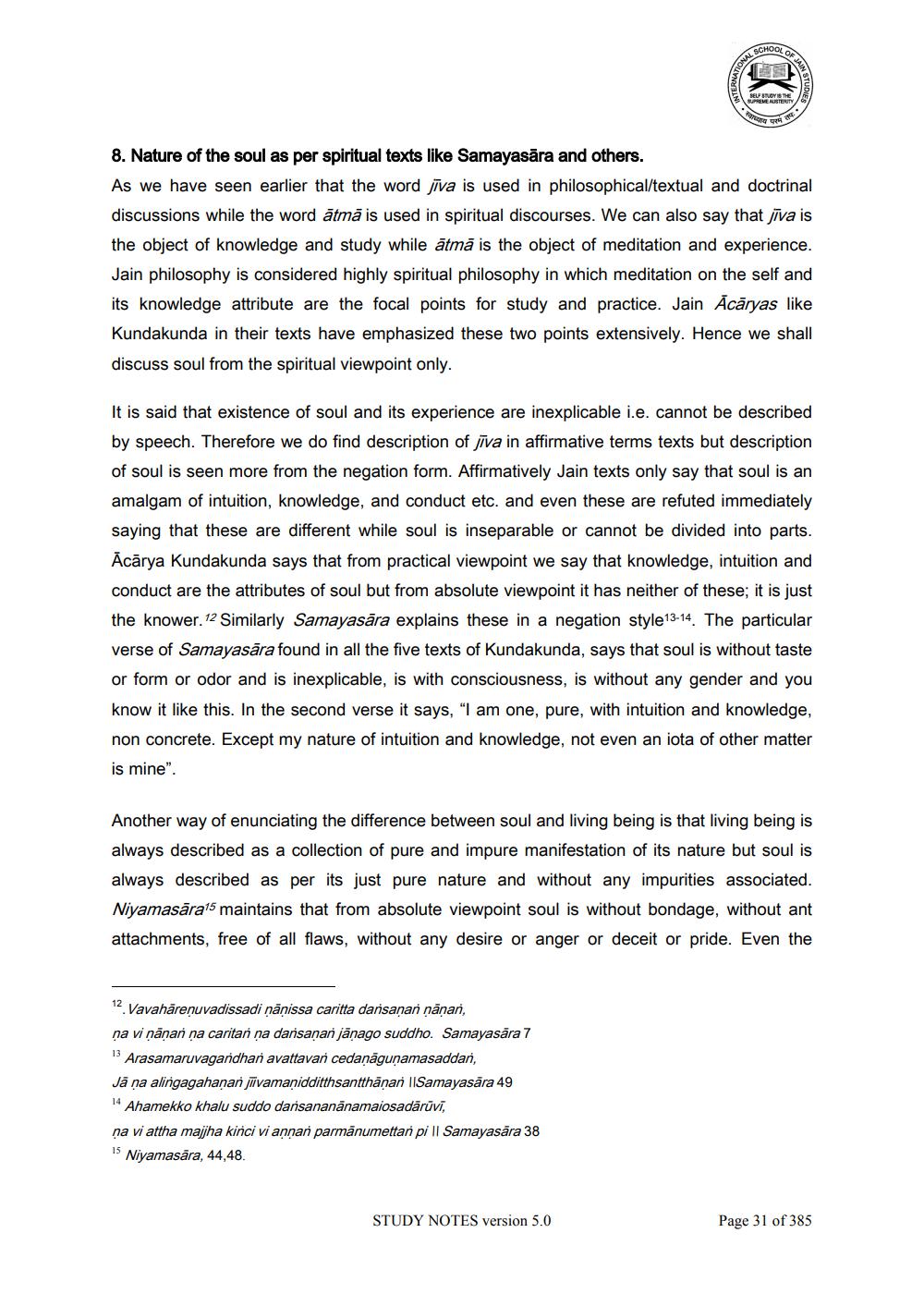________________
INTERNATIO
12. Vavahāreņuvadissadi nanissa caritta darsanan ṇāṇan,
na vi ṇāṇań na caritan na darsanan jānago suddho. Samayasara 7
13 Arasamaruvagandhan avattavan cedaṇāguṇamasaddan,
Jā na alingagahaṇanjivamanidditthsantthāṇan ||Samayasāra 49
14 Ahamekko khalu suddo darsananānamaiosadārūvī,
SCHOOL
na vi attha majjha kinci vi annan parmānumettan pi || Samayasara 38 15 Niyamasāra, 44,48.
STUDY NOTES version 5.0
SELF STUDY IS THE
SUPREME AUSTERITY
Farenga
OF
परम
8. Nature of the soul as per spiritual texts like Samayasära and others.
As we have seen earlier that the word jiva is used in philosophical/textual and doctrinal discussions while the word ātmā is used in spiritual discourses. We can also say that jīva is the object of knowledge and study while ātmā is the object of meditation and experience. Jain philosophy is considered highly spiritual philosophy in which meditation on the self and its knowledge attribute are the focal points for study and practice. Jain Acaryas like Kundakunda in their texts have emphasized these two points extensively. Hence we shall discuss soul from the spiritual viewpoint only.
It is said that existence of soul and its experience are inexplicable i.e. cannot be described by speech. Therefore we do find description of jiva in affirmative terms texts but description of soul is seen more from the negation form. Affirmatively Jain texts only say that soul is an amalgam of intuition, knowledge, and conduct etc. and even these are refuted immediately saying that these are different while soul is inseparable or cannot be divided into parts. Acarya Kundakunda says that from practical viewpoint we say that knowledge, intuition and conduct are the attributes of soul but from absolute viewpoint it has neither of these; it is just the knower. Similarly Samayasara explains these in a negation style-14. The particular verse of Samayasara found in all the five texts of Kundakunda, says that soul is without taste or form or odor and is inexplicable, is with consciousness, is without any gender and you know it like this. In the second verse it says, "I am one, pure, with intuition and knowledge, non concrete. Except my nature of intuition and knowledge, not even an iota of other matter is mine".
तप
Another way of enunciating the difference between soul and living being is that living being is always described as a collection of pure and impure manifestation of its nature but soul is always described as per its just pure nature and without any impurities associated. Niyamasara1 maintains that from absolute viewpoint soul is without bondage, without ant attachments, free of all flaws, without any desire or anger or deceit or pride. Even the
Page 31 of 385




